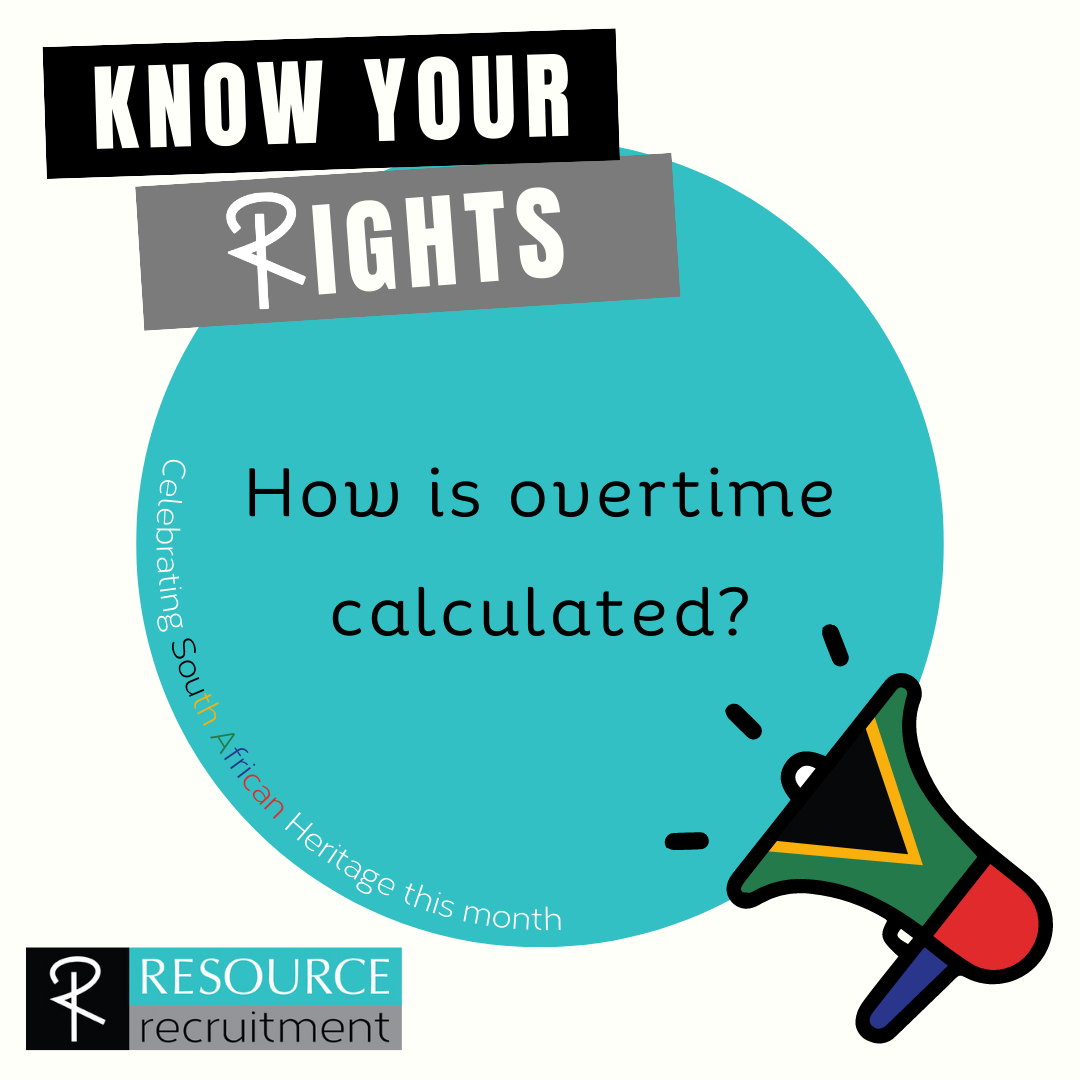
14 Sep Know Your Rights: How is overtime calculated?
Know Your Rights:
How is overtime calculated?
What the Law says:
Chapter 2, Section 10 of The Basic Conditions of Employment Act No.75 of 1997, as amended in 2020 is part of the new amendment, and states:
Overtime.
An employer may not require or permit an employee to work—
(a) overtime except in accordance with an agreement
(b) more than ten hours overtime a week.
[Subs. (1) substituted by s. 3 (a) of Act No. 11 of 2002.]
(1A) An agreement may not require or permit an employee to work more than 12 hours on any day.
(2) An employer must pay an employee at least one and onehalf times the employee’s wage for overtime worked.
(3) Despite subsection (2), an agreement may provide for an employer to—
(a) pay an employee not less than the employee’s ordinary wage for overtime worked and grant the employee at least 30 minutes’ time off on full pay for every hour of overtime worked; or
(b) grant an employee at least 90 minutes’ paid time off for each hour of overtime worked.
(4)
(a) An employer must grant paid time off in terms of subsection (3) within one month of the employee becoming entitled to it.
(b) An agreement in writing may increase the period contemplated by paragraph (a) to 12 months.
(5) An agreement concluded in terms of subsection (1) with an employee when the employee commences employment, or during the first three months of employment, lapses after one year.
(6) (a) A collective agreement may increase the maximum permitted overtime to 15 hours a week.
(b) A collective agreement contemplated in paragraph (a) may not apply for more than two months in any period of 12 months.
(You can download a full copy of the Act Basic Conditions of Employment Act No here)
What the CCMA Says:
The CCMA also has a very useful Information sheet that breaks down all the relevant legislation
Download a copy of the CCMA Information Sheet on the Working Time
Who Does this Chapter on Leave Apply To?
This chapter does not apply to senior managerial employees, employees engaged as sales staff who travel, and employees who work less than 24 hours a month.
More Resources on This Topic that May Interest You:
Code of Good Practice on the Arrangement of Working Time
What are considered Normal Working Hours?
Disclaimer: RESOURCE recruitment is not a Labour Consultancy and is not giving Labour Advice. The above information is freely available on the Department of Labour and CCMA website, and any legal advice should be sought from a legal professional.



